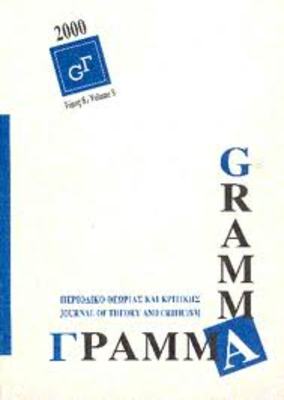How to do conspiracy theory with fetishism : the myth of the “Slain King”
Part of : Γράμμα : περιοδικό θεωρίας και κριτικής ; Vol.16, No.1, 2008, pages 207-231
Issue:
Pages:
207-231
Section Title:
Hollywood in/on crisis
Author:
Abstract:
The John F. Kennedy assassination has been, without a doubt, one of the darkest moments in twentieth-century United States history. For the past four decades, this traumatic event has inspired and fueled a plethora of conspiratorial visual narratives—"crisis" films—that seek to oppose and question the official historical record. The formation of conspiracy theories, both as cultural and artistic events, has been inextricably linked to the pathological condition of paranoia. This article attempts to divorce conspiracy from the theoretical framework of paranoia by arguing that in the case of Oliver Stone's controversial film JFK (1991) what informs and drives the narrative is not paranoia, but rather fetishism. Fetishism here functions as a type of defense mechanism, a means of dealing and coping with crisis. Exploring JFK through the theoretical framework of fetishism highlights some of the reasons why the film was met with extreme criticism as well as some of the ways the cinematic apparatus responds and creatively de-stabilizes the historical record.
Subject:
Subject (LC):
Keywords:
American cinema, films, John F. Kennedy assassination
Notes:
Revisiting crisis / reflecting on conflict: American literary interpretations from World War II to Ground Zero.Περιέχει βιβλιογραφία




